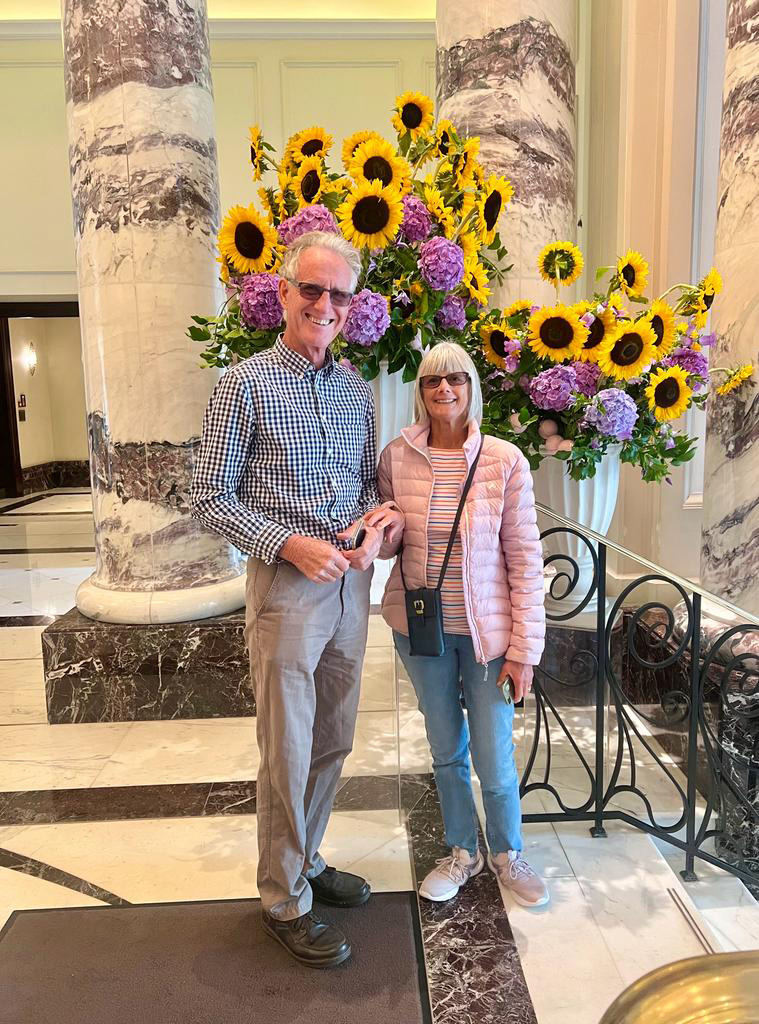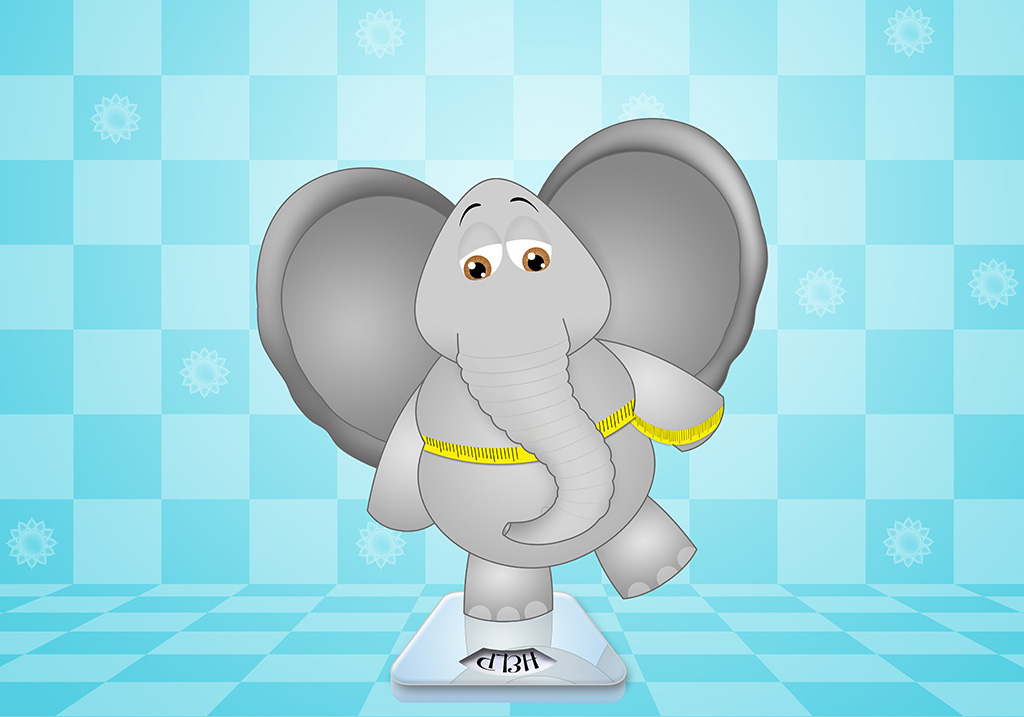“Screening” by Dr Dick Stockley / Photograph Courtesy of: Dick & Rosie Stockley
“Screening” by Dr Dick Stockley / Photograph Courtesy of: Dick & Rosie Stockley
When I was working in The Surgery we were members of a CME site and most days every doctor read a health education article. Old habits don’t die and I still do. This week I read a report from a meta analysis study that had shocked the writer, a popular American health-education contributor: cancer screening had no effect on overall mortality.

It can’t be true. Can it? When a 50-year-old sees their family doctor in USA the first thing they will look at is when was your last mammogram? When was your last colonoscopy? The figures however from something like 18 separate trials were clear. Those screened were not living longer than those that were not.
Now of course early detection of breast cancer from routine mammography, and early detection of cervical cancer by Pap smears, and early detection of cancerous polyps on colonoscopy saves lives from those cancers. However most of those screened don’t have cancer. The number of lives saved might be thousands but looking at the whole population is relatively few, and they all went on to die from something else. Those populations that were screened did not live any longer than those who were not. The conclusion was that the family doctor would have done more good measuring their waist circumference and asking the 50-year-old about obesity and processed food.
After a big storm a man was on the seaside throwing stranded starfish back into the sea. His friend said why bother there are millions of starfish, a few washed up on the beach don’t matter. It matters to that one he said as he threw it back. For the woman with early detection of breast cancer it matters. She might live another 20 years. Or she might die from a heart attack after 6 months because of obesity, alcohol and lack of exercise.

To be effective screening must be easy, safe, and targeted towards those who will benefit most. It must also be simple and cheap enough to be accessible by everyone. I remember a debate many years ago on colonoscopy: in USA they recommended routine colonoscopy for everyone over 40 as it was the most effective procedure for finding early cancer. The standard UK screening for colorectal cancer was checking stool samples for fecal occult blood. I commented that the English didn’t get an empire by pushing hosepipes up each others’ bottoms. But seriously more lives were saved from the easy simple fecal smear because most over 50’s was happy to bring in a stool sample. Far fewer were willing to go through the hassle of colonoscopy.
The point of the article though was priorities. Doctors were so fixated on high tech expensive screening for cancers affecting a few percent of their patients, that they ignored the big issue: over 30% of their patients are obese and eating their way to an early death. They might save a handful of cancer deaths each year from prioritising screening but hundreds of them will die early from a bad diet.
I added my comment to the article: the writer should have looked globally for comparison between societies who are highly screened with bad diets, and those rarely screened with simple diets. As a general rule in Africa routine screening is patchy, but most of us are thin and fit, the typical rural diet is almost entirely devoid of processed food, and bowel cancer is a city disease, rare in rural areas.
The recent pandemic showed stark contrasts: Deaths from covid in Africa were only 8 per 100,000 compared to 600 in some countries and about 400 average across North America and Europe. The reason why Africa as a whole had 50 x fewer covid deaths per capita was partly because of a much younger demographic but more importantly because most adults are thin and fit. Likewise, 40 years ago in Karamoja I noticed that most deaths were in early childhood from easily prevented infections followed by many deaths in young people from shooting. Once they reached 40 they either died young from alcoholism or lived to be 100. They were all thin and fit, walking miles every day. I don’t think they had a word in their language for heart attack.
Processed foods are now almost universally accepted as the prime cause of colorectal cancers.
Obesity is a contributing factor to many cancers including breast. Cardiovascular disease, mostly heart disease and strokes, is a massive epidemic in rich counties, reversing years of increased life expectancy. The medical profession indeed has got its priorities wrong.
Those with family history of young age bowel cancer should get regular screening from age 40. A colonoscopy to pick up hereditary polyposis is absolutely worthwhile. In some countries a stool sample for cancer cells is now the preferred screening but I don’t think it’s widely available. Men over 60 should request a blood sample for psa next time they see their doctor. It’s cheap simple and in The Surgery, you get an answer in half an hour. But see a sensible doctor with the result, a high psa does not automatically mean prostate cancer and rushing into a biopsy is rarely the best option. I suggest every woman with a family history of breast cancer must get regular examinations from age 30: like the starfish it matters to you. Young women should get regular Pap smears. Another starfish. But the rest of us must look to our diet if we want to avoid an early visit from the grim reaper.
Reversing the deteriorating health of the rich countries is not rocket science.
We are what we eat.
I love sausages. All children brought up in England love sausages. Sadly, bacon and sausage are processed food and increase the risk of bowel cancer. I comfort myself by saying the risk is massively reduced by high fruit and veg diets. A pineapple a day keeps the colonoscopy away.
We have to eat a lot less meat. Average meat consumption in obese, high cancer societies is around 100 kg per person per year. In low cancer Africa it’s 10 to 20, even the “rich” get by on 50kg. Try enjoying meat more by eating a lot less.
We must cut sugar. We have been tricked into eating low carb diets because sugar is a carb. Complex carbohydrates which we used to call starch and includes most vegetables are healthy. The cell wall of a cucumber is made up of carbohydrate. Its sugar and fats that need to be cut.
Obesity is killing us. The elephant in the room is the hippo on the sofa. We can watch our blood pressure, and measure our blood sugar, and take our lipid lowering drugs: but if we carry on with high sugar high fat diet and don’t do any exercise we will die young. Life expectancy across the rich countries is dropping after a century of slow improvement. The health benefits from new technology have finally peaked and we are now slowly eating our way into an early grave.
The article was correct. Doctors in the rich countries have got their priorities wrong. The most important screening tool they have is a tape measure.
